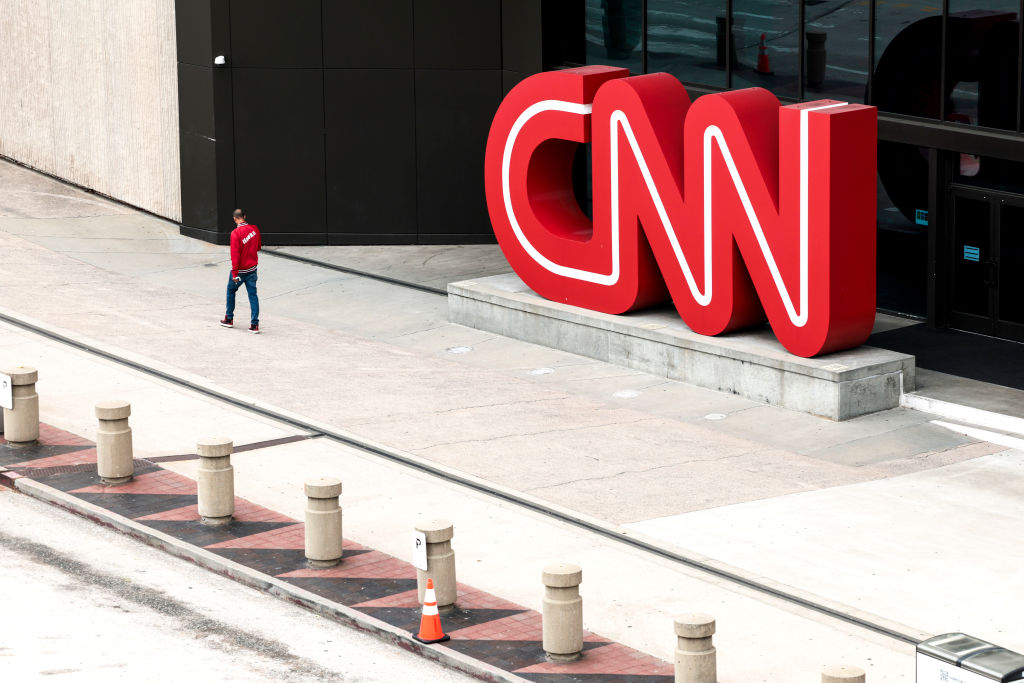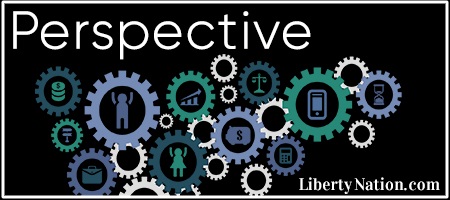
ATLANTA, GEORGIA – MARCH 15: People walk by the world headquarters for CNN on March 15, 2022 in Atlanta, Georgia. Last month CNN’s president Jeff Zucker resigned over a consensual, but unreported, relationship with a colleague. Television producer Chris Licht will become the company’s new president in April. (Photo by Anna Moneymaker/Getty Images)
Far from being “the most trusted name in news,” CNN may be able to claim the title of the most divisive name in America’s ever-growing news stable. In a startling survey carried out by YouGov in late March, Americans were asked which news outlets are the most trustworthy. As it turns out, respondents were most divided on the network formerly headed by the recently ousted Jeff Zucker. What the polling failed to examine, however, was why.
Compare and Contrast
The survey sought to find out to what degree purveyors of news were trusted by both Republicans and Democrats. While outlets like The Weather Channel and the BBC were deemed the most trustworthy across party lines, CNN had the widest gap between those who trusted and those who didn’t.
 For Democrat voters, 66% considered CNN a trustworthy source, which was joint first with PBS. Of Republicans, however, only 11% believed in what the home ground of Brian Stelter and Don Lemon was pushing. Among Republican voters, only MSNBC was trusted less. When the same survey was carried out in 2020, these figures were 64% versus 12%, suggesting that the split is widening year on year.
For Democrat voters, 66% considered CNN a trustworthy source, which was joint first with PBS. Of Republicans, however, only 11% believed in what the home ground of Brian Stelter and Don Lemon was pushing. Among Republican voters, only MSNBC was trusted less. When the same survey was carried out in 2020, these figures were 64% versus 12%, suggesting that the split is widening year on year.
A Slippery Slope
A growing partisan divide between news organizations came to the fore with the 2016 election of Donald Trump. While playing favorites and adding spin has long been a hallmark of legacy media across the political spectrum, the defeat of Hillary Clinton marked a line in the sand from which few outlets have recovered.
In 2016, New York Times author Jim Rutenberg wrote, “If you view a Trump presidency as something that’s potentially dangerous, then your reporting is going to reflect that. You would move closer than you’ve ever been to being oppositional.” According to Liberty Nation Senior Political Analyst Tim Donner, this was the moment that the Fourth Estate jettisoned its credibility. He argued:
“The effort by legacy media to take down Trump at the cost of their own ethical standards, informally launched that August day more than five years ago, was so manic that no attention was paid, it seems, to anything beyond their blinkered, myopic, shortsighted vision of themselves and their self-perceived virtue. In their rush to destroy a candidate and then a president, did they even stop to consider they were discarding something of infinite value to their trade — public trust — that can never be recovered?”
The Audience Reacts

With the launch of CNN’s new digital subscription app, CNN Plus, the cable news network sought to expand its reach. However, early results suggest the new platform has massively underperformed with just 10,000 folks opting to hand over their cash. And it’s not just the shiny new app that has been struggling under the weight of the partisan presentation of news.
The ratings of both CNN and MSNBC have dropped dramatically over the last year. Although part of this can be attributed to fewer events of national interest, along the lines of the 2020 presidential election and January 6 coverage, the overall decline in popularity is notable.
No Common Ground
Cable news outlets have entered the arena of gladiatorial combat. Certainly, they have long fought for ratings and key demographics that boost ad spending. But something relatively new is afoot. Rather than facing combat for the sake of viewership, these purveyors of entertainment media masked as current affairs are doing battle for the right to claim the narrative.
Instead of laying out all the facts, they present a mere handful, and omit those data points that do not bolster their specific ideological or political point. They have a story to sell and will lambaste and deride other networks whose opposing point of view weakens the argument. After all, if facts were presented without spin, the idea of trustworthy and untrustworthy news organs would be a moot issue.
In 2021, while accepting an award at the 45th Murrow Symposium, NBC’s Lester Holt let the proverbial cat out of the bag when he said, “I think it’s become clear that fairness is overrated … The idea that we should always give two sides equal weight and merit does not reflect the world we find ourselves in.” And in this concept, we can see the root cause of a divisive and divided Fourth Estate.
Rather than offering the public the straight skinny, a significant portion of America’s media denizens see their role as gatekeepers of all that is good, and more so, all that the public should know. They have set themselves up as wardens of what is publicly acceptable based on their own political leanings, and by doing so, have created partisan echo chambers where ideology trumps truth.
Remember to check out the web’s best conservative news aggregator
Whatfinger.com — the #1 Alternative to the Drudge

